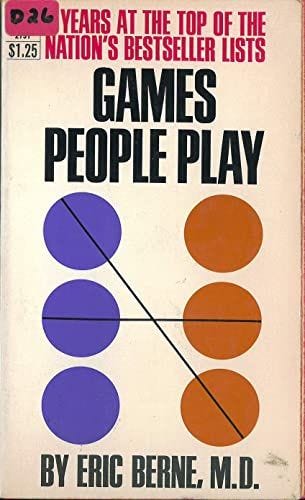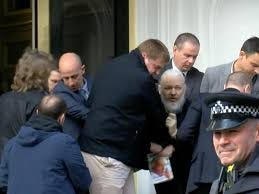Over the last three years—researching and writing Games Fascists Play—the concept of “psychopathy” kept popping into my mind. Stalin, Hitler, Mussolini, Bill Clinton, Trump…The concept of psychopathy is adjacent from “fascism,” but certainly not mutually exclusive. However, I was unsure how to connect psychopathy with the book on psychological games.
I’m in the process of finishing a new “criminal” / War game. In Games People Play, Eric Berne had an entire section on “Underworld Games.” This included Cops & Robbers and How Do I Get Out? (of prison) to mention a couple. Eric Berne described the game, “Let’s Pull a Fast One On Joey” (FOOJY), whereby Black finds a mark (Joey) who is ostensibly ready to be taken or defrauded. [i] Therefore, Black focuses on gaining the trust and confidence of Joey to facilitate the game, while really Joey (in a twist of drama) is in on the game to hoodwink White (e.g., honey trap). I couldn’t figure out why Berne used “FOOJY,” instead I spelled it out: [let’s pull a] Fast One On JoeY (FOOJY).
The “new” game is called, Let’s Pull a Fast One On Julian. No good mnemonic there. I tried. Instead of using Berne’s creativity, I shortened the game title to fit the thesis of Let’s Pull a Fast One On Julian: humiliation. So, instead of FOOJY, the game is shortened to FOOLS. Based on significant information I’ve learned about Julian Assange, his incarceration, Wikileaks, and Julian’s criminal cases, etc. I wrote most of the FOOLS game the day I found out he plead out of a hellish prison existence and was set free.
With FOOLS, White is an intelligentsia operative (e.g., CIA). They dishonestly exhibit “how bad” Black (Julian) has been in the name of “national security.” White attempts to stop Black and incarcerates him. FOOLS is also a micro-level derivative of the Occupation game, whereby White ideologically and psychologically confines Black. With FOOLS, White attempts to sequester Black with the aid of the corporate media. But, the joke is on White (e.g., Mike Pompeo) because the plan doesn’t work as planned (getting rid) and therefore ‘holding the bag’ (FOOLS). The Fast One didn’t work.
Currently, I’m analyzing “character structure” with my psychotherapy patients as well as reading about it in various texts. Long story short, it is time for some commentary on the “psychopathic character structure”. That is to say, what are the functional aspects of this personality-body?


Here are my temporary conclusions that will be integrated into the FOOLS game (in the War games section):
The fear of humiliation is central to the psychopath. This fear manifests as projection from their social programming. Their program is to “make fools of people.” [i] Donald Trump has feared mockery and humiliation throughout his career. [ii] He projects his fear of exploitation (‘getting fucked’) onto “intruders”: Obama (birther), “the border crisis,” (migrants, asylum seekers), Mexicans (rapists), BLM (terrorists), “Communist China,” etc.
The psychopathic shares similarities with the Zen master in terms of psychic structure or personality (not behavior). For both, there is no relative identification with an Other in their environment, i.e., nonduality; the experience is infantile (simple consciousness): everything at once. However, for the psychopath, it is a narcissistic everyone and everything is Othered as it relates to “me” compare to the no-self or no-mind of the Zen master.
Charisma and bravado are central for power and control. Trump’s bravado (be strong) shouts both victimization and invincibility. The attempts to assassinate him have only inflated his martyr status. For the psychopathic structure (e.g., Epstein), the Other is viewed as an intruder unless they are in in a position of total control. This is captured in, “I can be close to you as long as you let me control you”. [iii] Trump surrounds himself with loyal followers who will bend rules and exploit for their own self-enrichment as long as they let Trump control them. Therefore, all psychic energy is used to get what one wants by enforcing symbiotic relations with others to “win” (dominate) or arrogantly get rid of others: “You’re fired” or “Hears some hush money.”
With the psychopathic character structure, the Other is a means for predation and self-enrichment. The voice of their Parent ego state, which pertains to child-rearing and is protective or permissive. Jeffrey Epstein—even though it seems very probable that he was murdered—likely hung himself with no qualms (because he knew what the guy above him could do to him). So, the psychopathic character structure is able to not just muzzle the Parent (judgment, nurturing, moralizing), it becomes asphyxiated. There is conscience (morality) there to let out, but it has long been choked shut.
Instead all the psychic energy is used in the hot pursuit of getting what they want (craving). The vehicle is to be Mr. Wonderful. Behind the mask and distrustful eyes, there is a wall of armor. I would argue that it is porous and responsive to psychotherapy. This rigid and hardened body defends against being seen as a FOOL (humiliation). The armor is built in and around the body. They are habitually puffed up in body while promoting masculine forms of strength. The psychopathic structure knows only dominance and control. Oh, and one more thing: we live under mafia rule. In a chapter from Fascism in America, Trumpism is an “extension of a longstanding elite commitment to oligarchic rule that predates fascism.” [40] 9 Though they differed rhetorically, both the Trump and Biden regimes governed on a neoliberal ideology and kleptocracy. The latter is ruling by thieves:
In this type of government, the leader cynically uses all possible means – corruption, venality, and deceit – to pursue self-enrichment. 9
[i] p. 139, Berne, E. (1964). Games people play: The psychology of human relationships. New York, NY: Grove Press, Inc.
[i] p. 128, Cassius, J. (1975). Body scripts: collected papers on physical aspects of transactional analysis. Unpublished.
[ii] p. 96, Editor, Rosenfield, G. D. & Editor, Ward, J. (Eds.). (2023). Fascism in America: Past and present. Cambridge University Press: New York.
[iii] p. 128, Cassius, J. (1975). Body scripts: collected papers on physical aspects of transactional analysis. Unpublished.










